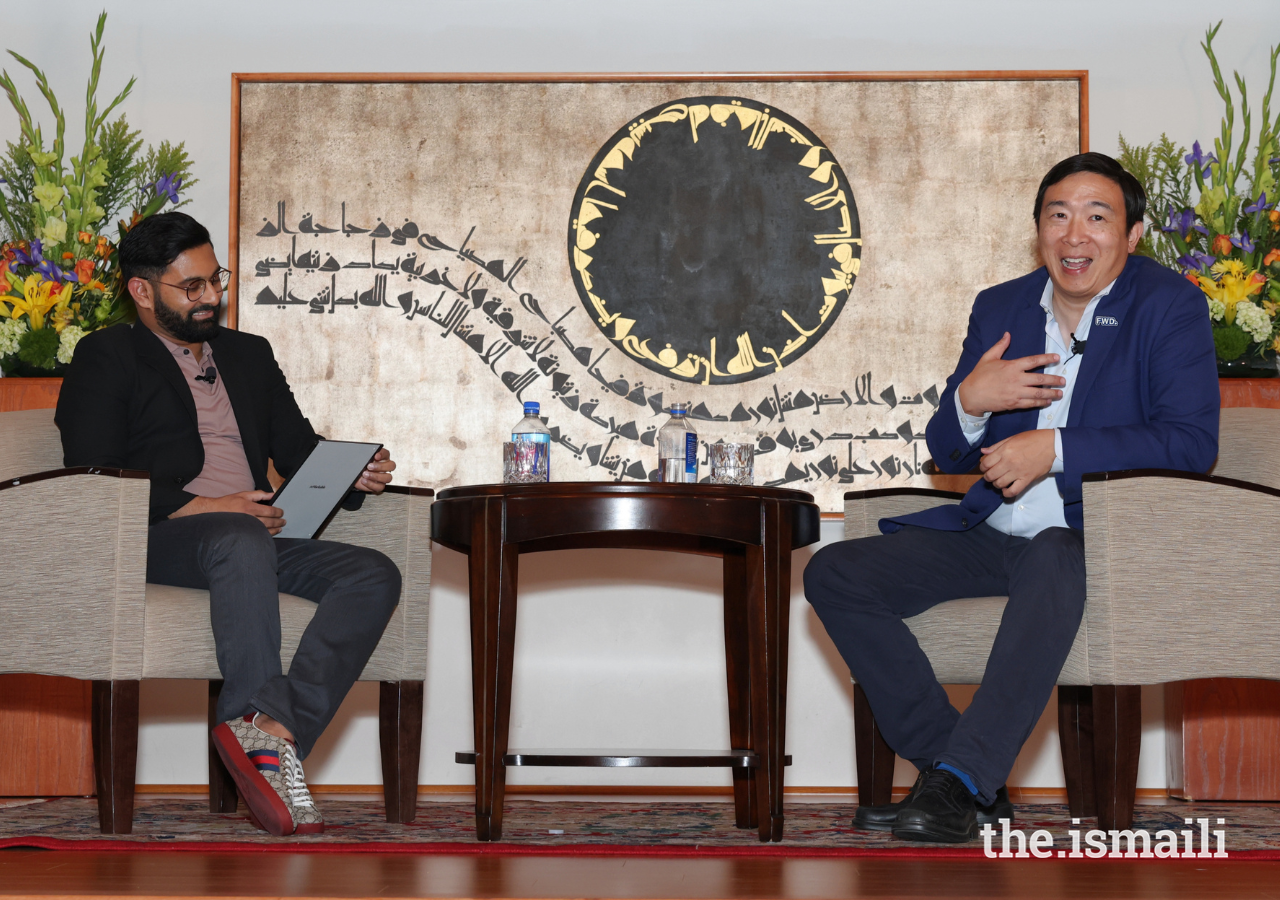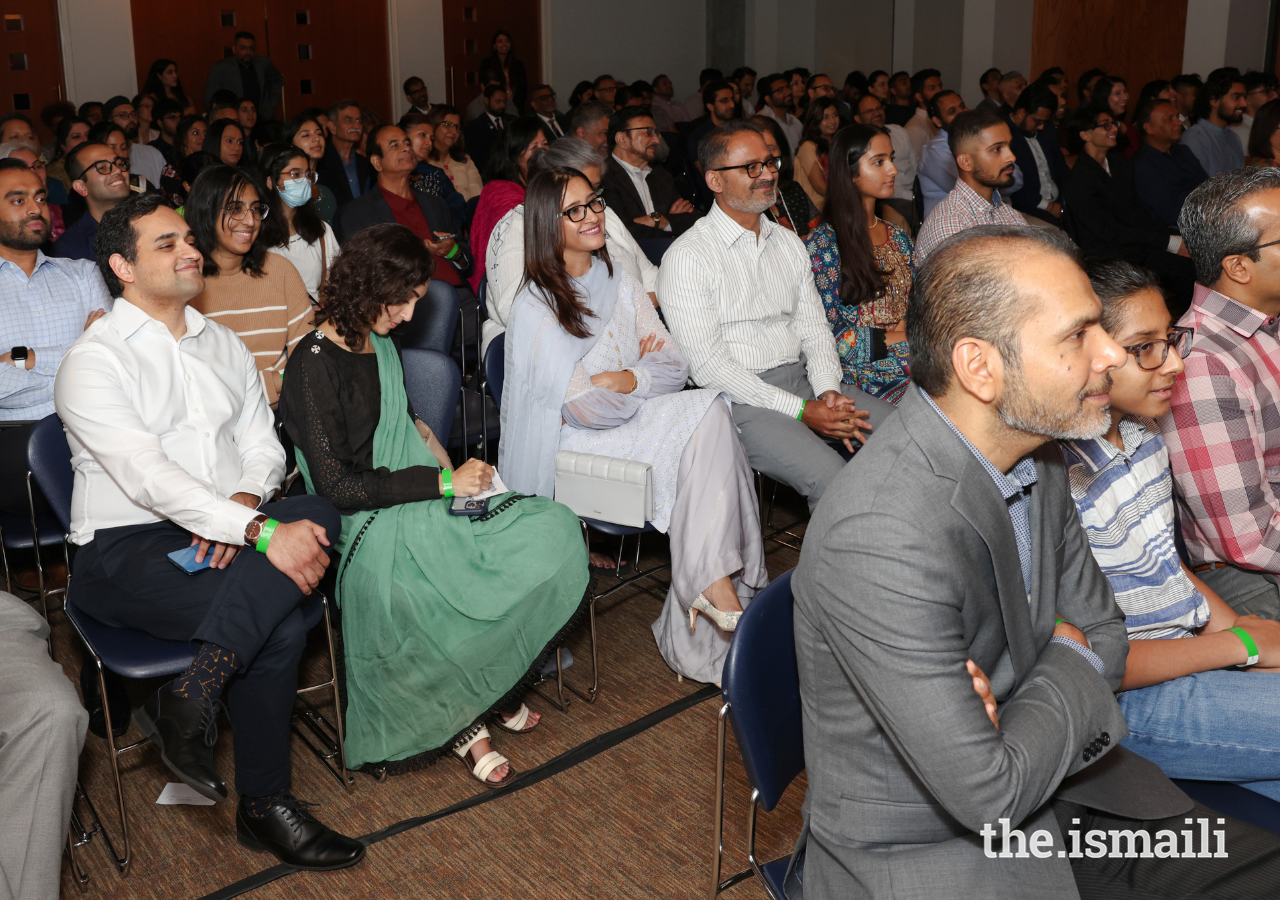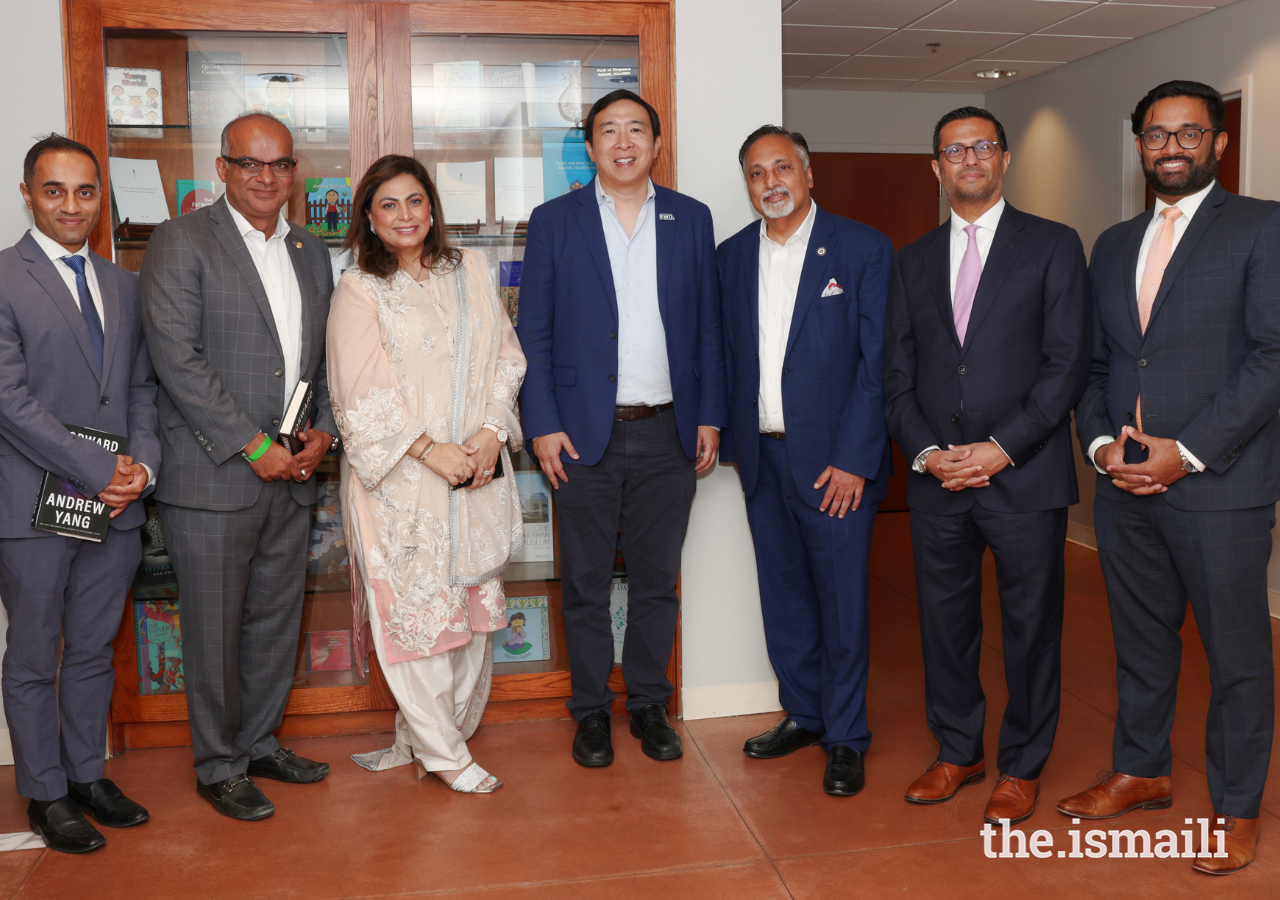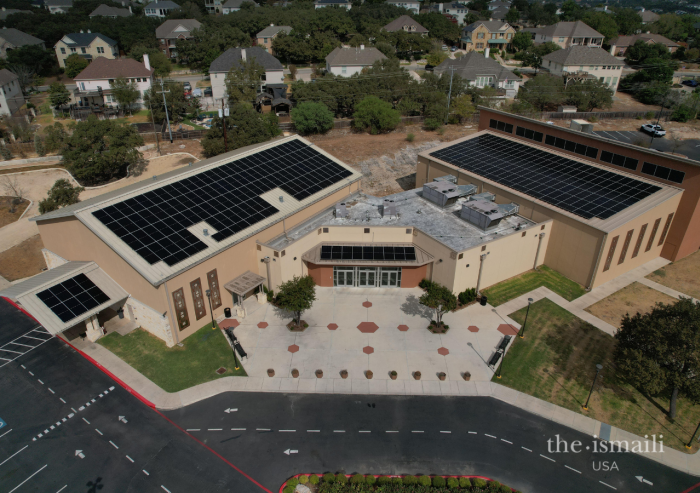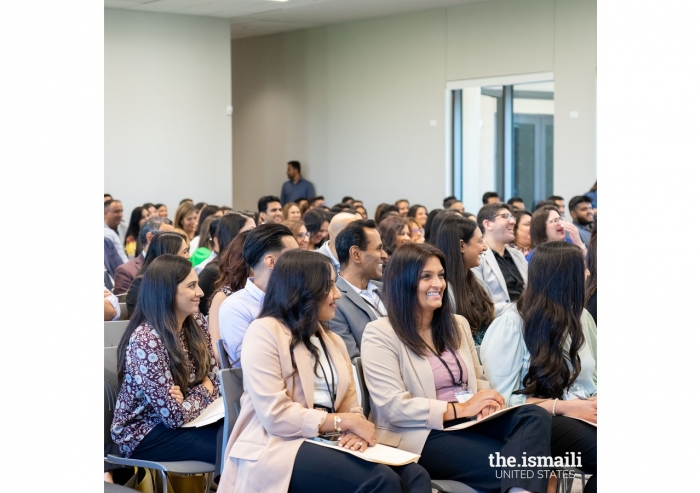"If you want to see our policies reflect our values, it is up to us," said Andrew Yang.
Trailblazing entrepreneur and former presidential candidate Andrew Yang took the stage at the Ismaili Jamatkhana and Center in Sugar Land, Texas, on a warm Friday to share his thoughts on the future of artificial intelligence (AI).
In a thought-provoking talk followed by a moderated session, Yang discussed the potential impact of AI on jobs, the need for new policies to address the challenges of automation, and his own vision for a more equitable future. Moderated by technology leader and entrepreneur Sahir Ali, the event offered a platform for Yang to delve into his unique perspective on AI and engage with the audience on the pressing issues of the digital age.
Continue Giant AI Experiments or Pause?
Yang, one of the signatories to an open letter urging a six-month moratorium on the development of the most advanced artificial intelligence systems, said our policymakers are way behind the curve. "D.C. can't even understand social media, much less AI,” he said.
While embracing opportunities AI presents, Yang cautioned against its unregulated proliferation. He stressed the importance of thoughtful regulation to avoid creating new problems while solving existing ones.
On the other hand, the moderator Sahir prompted us to learn and engage with the technological, ethical, and societal impact, adding that "Pausing something we don't understand is often driven out of fear."
Role of Politics
Highlighting the transformative potential of AI, Yang emphasized the importance of restoring the connection between the public and their representatives. "One reason I admire your community... is because you are engaged," said Yang about the Ismaili community.
Image 3

Recognizing the shortcomings and polarization of the current political landscape, Yang advocated for policies that not only tackle challenges posed by AI but also ensure that the benefits of AI are accessible to all members of society.
"Our policies are not meaningfully responding to the challenges of this era," Yang remarked, urging the audience to recognize that the impending changes would affect every individual and emphasized the need for policies to address the potential consequences.
He stressed the importance of establishing ethical guidelines and regulations to govern the development and deployment of AI. Yang noted that the European Union has implemented intelligent rules to govern AI, highlighting the importance of thoughtful regulation.
Future of Work
Yang stressed that AI has the ability to replace repetitive cognitive work, such as call centers, insurance, accounting, entry-level legal tasks, and certain aspects of financial services. What cannot be automated will be saved – non-repetitive manual work, such as hotel staff, plumber or HVAC technician, to name a few.
"Will AI pay taxes if it replaces call center workers?" he asked, "Will it retrain the displaced workers?"
Recognizing the shortfall in current vocational programs and reskilling efforts, Yang shared the need for competent education and reskilling programs. He placed importance on equipping individuals with the necessary skills to adapt to the changing job landscape and seize new opportunities arising from AI.
Role of Data
Yang, often recognized as the "Math Guy," asked, "How do we think about data in AI?" AI models rely on data, and the output is only as good as the data that goes into it. We need more inclusive datasets that are a true representation of our world, he explained.
As a son of immigrants, he related to the Ismaili communities in the U.S. and the challenges faced in our everyday lives where minorities are often not represented or under-represented. He advocates for transparency in AI algorithms and decision-making processes, aiming to minimize bias and ensure accountability and representation.
Image 10

Yang emphasizes the need for comprehensive data protection measures to safeguard individuals' privacy rights, preventing the misuse of personal information in AI systems. While AI presents remarkable opportunities, he cautioned that it could both solve and create problems for society.
AI and Humanity
Acknowledging the power of AI to simulate human behavior and decision-making, Yang talked about the necessity of maintaining a human element in crucial judgments. He cautioned against relying solely on algorithm-led decision-making processes and stressed that AI should never be entrusted with life-or-death decisions.
While there are some positive use cases of AI in education and healthcare and even climate change. "But while it can help cure cancer, it could also lead to identity theft, military conflict, and distortion of truth," Yang noted.
Cautioning against overreliance on algorithm-led approaches, he advocates for a comprehensive approach that combines AI with human perspective, preserving the human touch in significant judgments.
Entrepreneurial Community
"Entrepreneurship is about making sure new possibilities exist," said Yang. "This is an entrepreneurial community... the country could use more entrepreneurs." Relating to the Ismaili community, the entrepreneur-turned-politician shared that as an entrepreneur striving to make positive changes, he understands it can be an isolating place.
Yang recommended that young entrepreneurs have a few relatable friends and family members to talk to and share mistakes with. He also talked about how entrepreneurs can create possibilities for AI to be used in ways that address meaningful problems while prioritizing human well-being and societal progress.
As the event concluded, Yang engaged with the audience and encouraged the youth to engage in team sports and cultivate a sense of community. He also encouraged budding entrepreneurs to keep progressing.
"Entrepreneurship requires you to be the best version of yourself," he said in a final remark.

